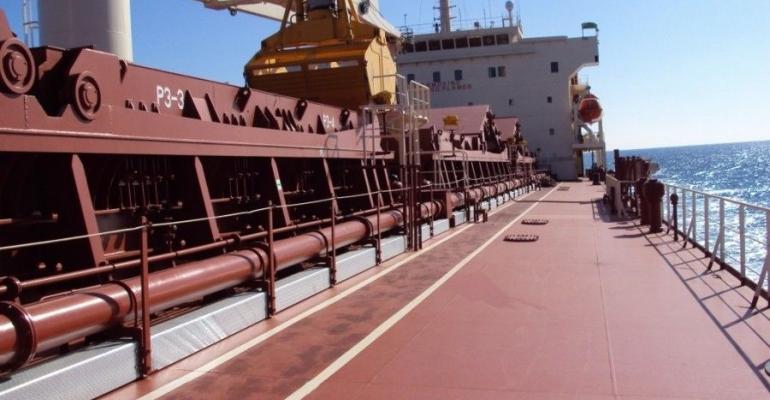Digitalisation linked to sustainable and environmentally friendly transport of cargo. Conference chairperson Angus Campbell, from Bernhard Schulte Ship Management, taking a phrase from Ikea, told the opening session audience that cargo interests are looking for “climate positive transportation”, and that efficiencies on the maritime front complement improvements all across the value chain.
Fellow panelist Jan Willem van den Dijssel from Cargill Inc. emphasized three imperatives at Cargill, namely supporting global trade, embracing digitalization and building safe/responsible supply chains. And they are “not your traditional shipowner”, he stressed.
Speaking about shipping generally, van den Dijssel mapped out four key actions: “to be ambassadors of trade, to be architects/builders of sustainable supply chains, to be pioneers of new technology and innovation, and to be responsible global citizens.”
A different slant on shipping businesses actually “walking the walk” came from Eagle Bulk, where ceo Gary Vogel described his company’s “active operator model” and its uses of data to come up with fact-based decisions (with emphasis on routing of vessels and fine tuning of speed and consumption). In the highly commoditized dry bulk business, he said that “data-driven business models” brought Eagle Bulk, the owner of 47 supramaxes, an opportunity to differentiate and gain a competitive advantage over a very fragmented sector.
He explained ongoing efforts at developing dynamic models of vessel operation at various load conditions, which can then provide dynamic instructions for Eagle Bulk vessels on voyage business (where incremental advantages accrue directly to profits).
Looking ahead to 2020, and the widely bemoaned vagaries of fuel pricing and availability, Vogel suggested that this same data could be used develop routing and optimal speeds depending on fuel prices. Such optimized trading patterns are a further business advantage – flowing directly down the income statement to the bottom line.
Copyright © 2024. All rights reserved. Seatrade, a trading name of Informa Markets (UK) Limited. Add Seatrade Maritime News to your Google News feed.


